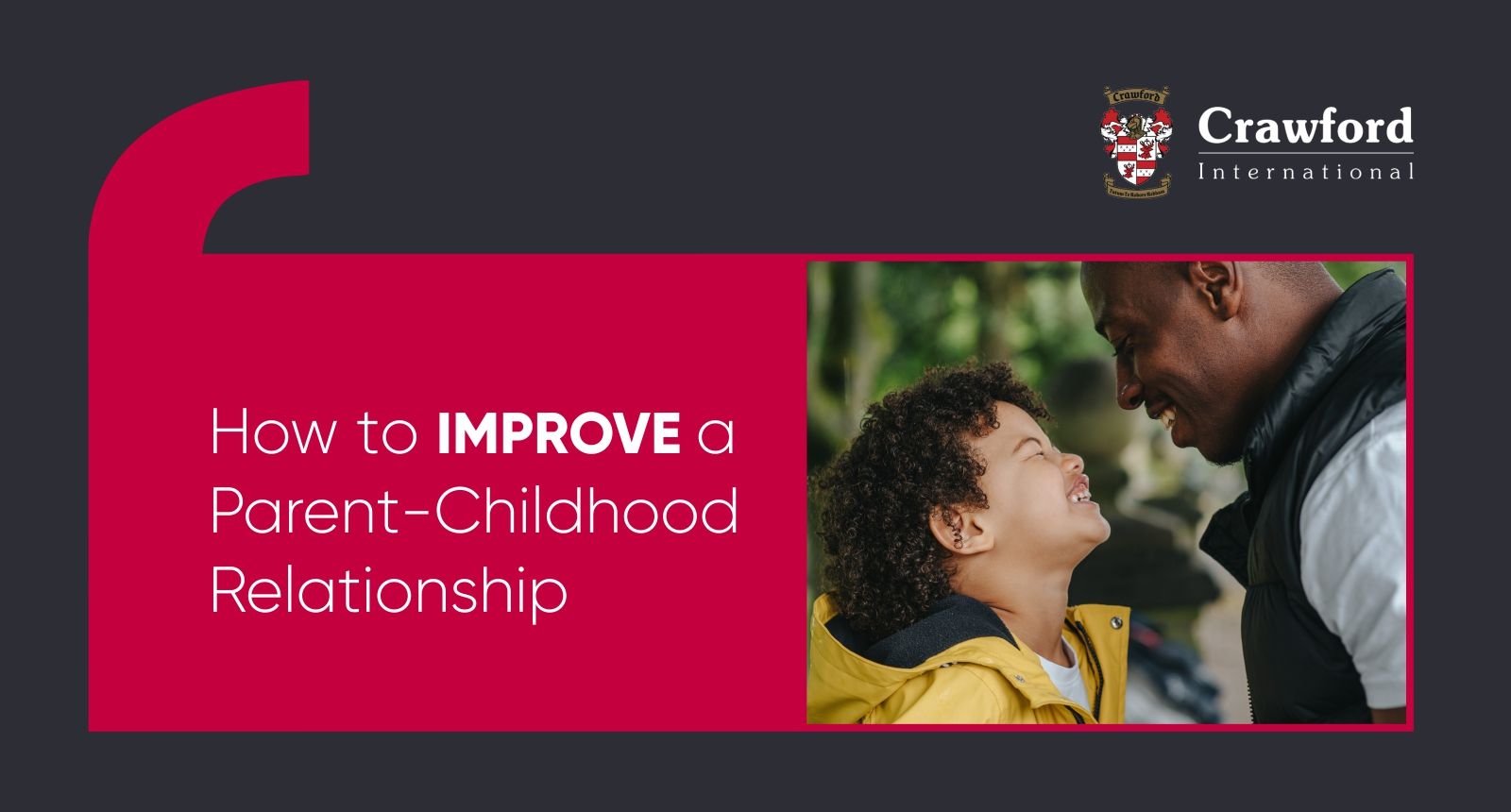How to improve a Parent-Childhood relationship
January 27, 2023
A solid parent-child relationship helps to guide your child through life, as it builds the foundation for their identity, personality, and self-awareness, emotions, relationships with others, and behaviour.

When the parent-child attachment is healthy, this relationship is secure and you can nurture it as your child grows, ensuring that your relationship grows as well. An open, rock solid parent-child relationship benefits your child in many ways:
- Helps them navigate social situations and relationships with their friends.
- They learn how to regulate their emotions, especially in challenging situations.
- Boosts their self-confidence, as you are involved in their day-to-day life.
- Helps in language and cognitive development.
- Encourages problem-solving skills.
There are five elements of a parent-child relationship
Your parent-child relationship is unique to you and your child, but there are parts of it that studies have shown exists in every parent-child relationship. These are:
Respect and trust
No relationship an work without the aspects of respect and trust. When your child was a baby, you started to build a foundation of trust by responding to their needs, both physical and emotional. This not only creates a strong bond between you, but also establishes mutual respect. As your child grows into school-going age and adolescence, you can keep that bond strong by continuing to respond to their needs. This lets your child no that they matter to you. Knowing that you are there for them, no matter what, means you have empathy, acceptance, and communication in your parent-child relationship.
Unconditional love
Being not only accepted, but loved for exactly who they are is a cornerstone of this relationship, and the respect and trust its built on. This is about making your child feel loved without them ever feeling that they need to work for that love. Because your child is the wonderfully made and unique person they are, and you love all of them – even their ‘shortcomings. By doing this, you are letting them know that the secure bond between you will always be there, they can trust it and nothing can break it. They’re accepted and celebrated, and your parent-child relationship is strengthened as a result of this. Even through tumultuous or challenging times.
Positive discipline
Boundaries are a very important part of life, they teach our children that are certain behaviours and actions that just aren’t acceptable and that they can make there way through the world safely. By working within those boundaries, they also learn how to establish and recognise their own boundaries – an important skill when it comes to teamwork and relationships.
When these boundaries aren’t put in place, or are inappropriately actioned, your child can’t trust that you’ll keep them safe. This is where discipline comes in. When our children are shamed because of their behaviour, when all they know is that they did something wrong (and not how to make it right), they start to feel bad about themselves and the person who is making them feel that way. Using positive discipline, on the other hand, with the end goal of independence and self-worth, guides your child to the right behaviours while allowing them to feel respected and listened to.
Partnership
Not only does sharing the power with your child make them feel more secure and respected in the parent-child relationship, it’s also part of putting positive discipline into practice. It’s really all about problem-solving – identifying a problem and then working together to find the solution/s. By listening to their opinions around the issue at hand and allowing them to be part of the process, you are building on that trust, respect, and acceptance that make up the bond between you. The results are appropriate and clear boundaries that take everyone’s needs into account.
Independence
The trust, respect, love and acceptance in the parent-child relationship innately encourages your child’s independence. Because they know you are there for them no matter what, they feel empowered to be independent beings and shoulder the responsibilities this comes with. Even though so much of their lives – especially when they are younger – is dictated by adults, they can and should make their own choices, be encouraged to have their own opinions, and make mistakes. This lets them know you trust them and eases some of their frustrations about not having full agency over their lives.












